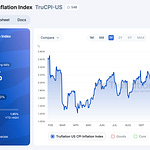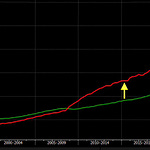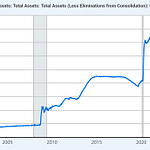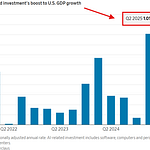To investors,
Liza Lin wrote a story in the Wall Street Journal this morning titled “China Intensifies Push to ‘Delete America’ From Its Technology.” It clearly articulates a renewed effort by China to reduce their dependency on American technology companies, including hardware and software producers.
Lin writes:
“The 2022 Chinese government directive expands a drive that is muscling U.S. technology out of the country—an effort some refer to as “Delete A,” for Delete America.
Document 79 was so sensitive that high-ranking officials and executives were only shown the order and weren’t allowed to make copies, people familiar with the matter said. It requires state-owned companies in finance, energy and other sectors to replace foreign software in their IT systems by 2027.
American tech giants had long thrived in China as they hot-wired the country’s meteoric industrial rise with computers, operating systems and software. Chinese leaders want to sever that relationship, driven by a push for self-sufficiency and concerns over the country’s long-term security.
The first targets were hardware makers. Dell, International Business Machines and Cisco Systems have gradually seen much of their equipment replaced by products from Chinese competitors.
Document 79, named for the numbering on the paper, targets companies that provide the software—enabling daily business operations from basic office tools to supply-chain management. The likes of Microsoft and Oracle are losing ground in the field, one of the last bastions of foreign tech profitability in the country.
The effort is just one salvo in a yearslong push by Chinese leader Xi Jinping for self-sufficiency in everything from critical technology such as semiconductors and fighter jets to the production of grain and oilseeds. The broader strategy is to make China less dependent on the West for food, raw materials and energy, and instead focus on domestic supply chains.”
If you ignore which countries are involved and merely evaluate this strategy on merit for a nation state, it makes a lot of sense.
Reducing dependency on foreign countries and international supply chains makes your country more resilient. Driving innovation and focusing on domestic manufacturing creates jobs, while simultaneously creating GDP growth. Lastly, a vertically-integrated nation state has less security vulnerabilities to worry about.
For some reason, the American economy and our politicians have a harder time pursuing this strategy than China. There is no guarantee that China will be successful, but at least they are trying.
Imagine if you read the following:
“The effort is just one salvo in a yearslong push by the American President for self-sufficiency in everything from critical technology such as semiconductors and fighter jets to the production of grain and oilseeds. The broader strategy is to make America less dependent on the East for food, raw materials and energy, and instead focus on domestic supply chains.”
That description would be incredibly bullish for the future of America. Unfortunately, it is not true at the moment.
One other idea came to mind as I read the article this morning — decentralization. Given the rise of blockchain technology, combined with an ever-increasing popularity of open source software, it would not be surprising to see more country-agnostic technology.
Bitcoin is a solid example. It is not possible for a country to fight bitcoin on the premise that their citizens should not adopt another nation’s currency. Bitcoin has no nation. It is not American or Chinese. The digital currency simply exists in a global economy and can be used by anyone for their desired purpose.
There are not many technologies that fit this description today, but my expectation is that many more will reach global adoption as geopolitical tensions continue to rise between the largest economies in the world. Politicians and militaries care about countries of origin. The end user just wants to use technology that solves their problem.
The natural answer will be decentralized, open-source technology. It will be interesting to see what major products are next to seize the opportunity.
Hope you all have a great day. I’ll talk to everyone tomorrow.
-Anthony Pompliano
Anthony Pompliano records a solo episode explaining what is going on in the bitcoin market, historical context, analysis of where we currently are, macro environment, and where we are headed.
Listen on iTunes: Click here
Listen on Spotify: Click here
Bitcoin Update: All-Time High and Where We Are Headed
Podcast Sponsors
Frec.com - Use tax-loss harvesting to save on your tax bill, while keeping the same investment exposure you already have.
BetOnline - Use crypto to bet on sports, casino games, horse racing, poker and more with promo code POMP100.
Espresso Displays - The world's thinnest touchscreen portable monitor. Expand your workspace and work from anywhere.
Trust & Will - Estate planning made easy. They are fast, secure, and simple to use. Get your will or trust created today.
Base - Base is shaping the future of the on-chain world with near-zero gas fees and rapid transaction speeds.
ResiClub - Your data-driven gateway to the US housing market.
Bay Area Times - A visual newsletter explaining the latest tech & business news.
You are receiving The Pomp Letter because you either signed up or you attended one of the events that I spoke at. Feel free to unsubscribe if you aren’t finding this valuable. Nothing in this email is intended to serve as financial advice. Do your own research.












